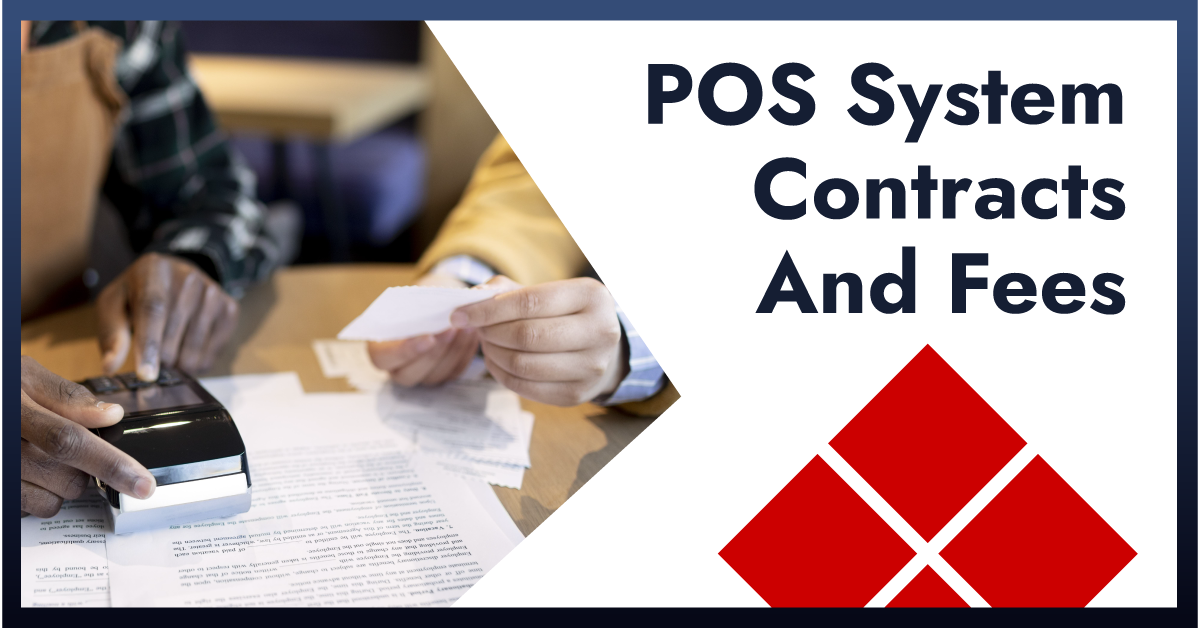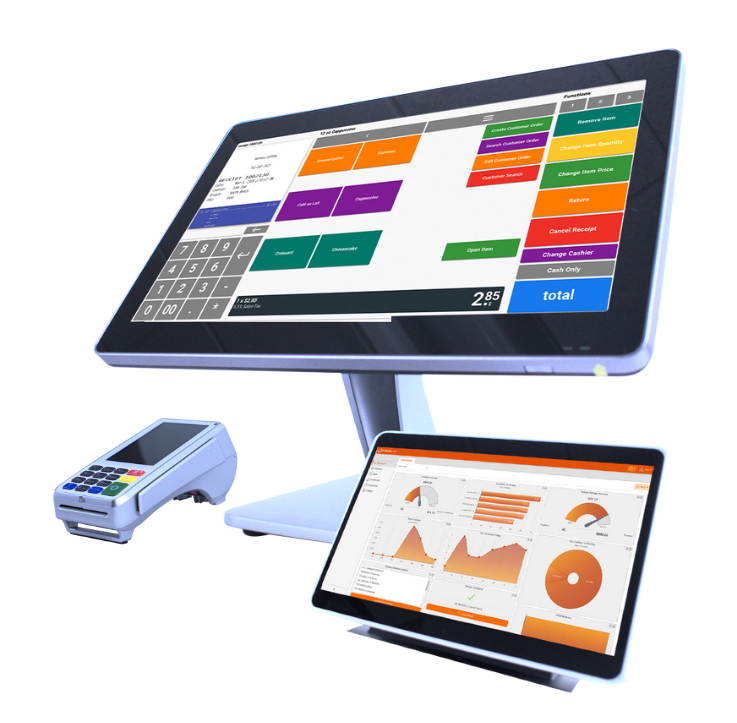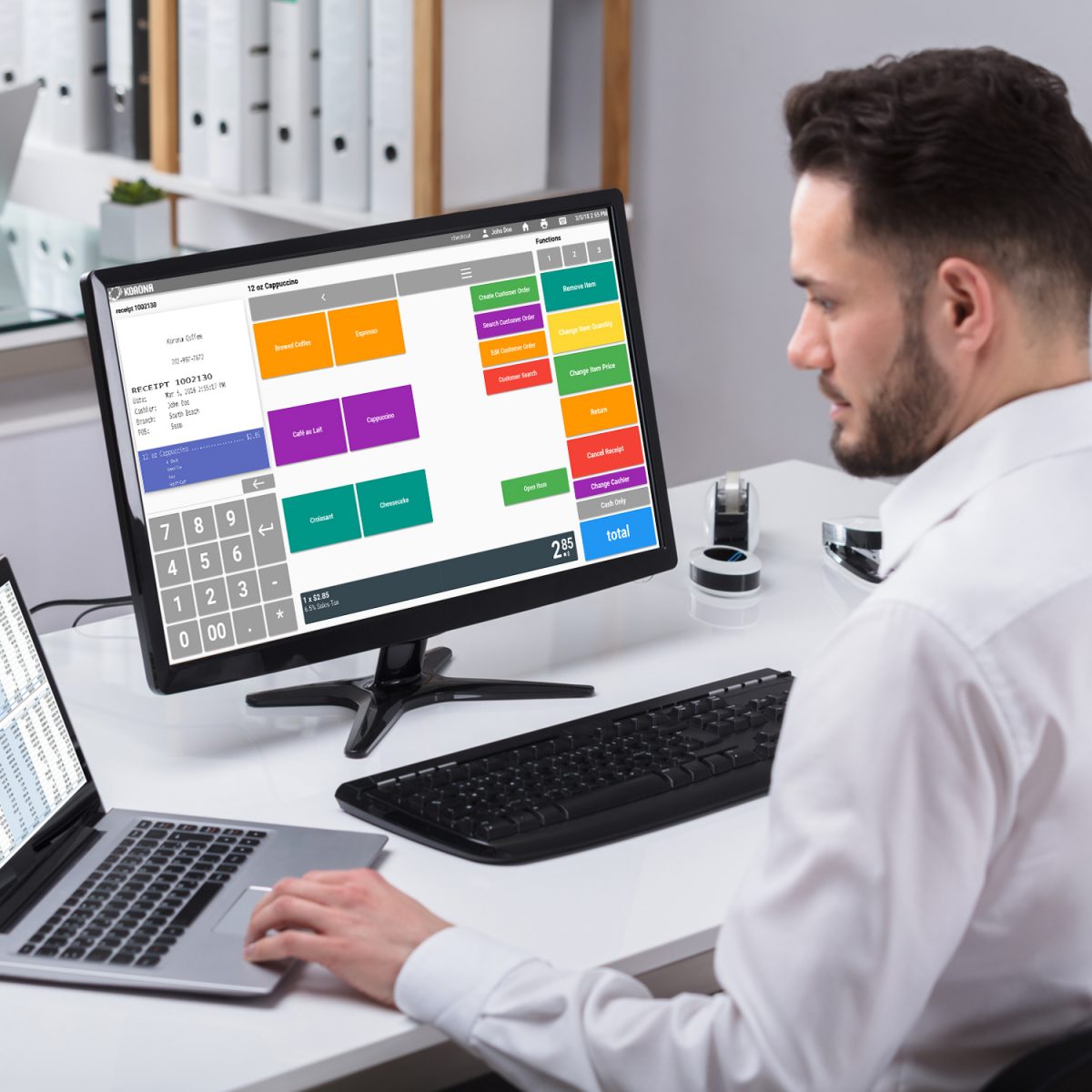

When looking at POS solutions, it’s important to review contracts carefully. This ensures that the terms and costs fit your current and future business needs.
In this article, we explore elements to be aware of when you’re about to sign a POS system contract. Retailers can use these tips to get maximum value and avoid common issues.
A few of the key areas to look at when evaluating POS contracts include the following:
Following these guidelines helps business owners secure a POS agreement suited to their unique needs. Read on to learn more.

Retailers should pay close attention to the hardware and software requirements specifications when negotiating POS system contracts. The hardware aspect of a POS system typically includes components such as terminals, barcode scanners, receipt printers, cash drawers, and card readers. The contract must specify the make and model of each hardware component, ensuring they are up-to-date and compatible with current industry standards.
Additionally, retailers should expect the contract to outline the durability and maintenance support for the hardware, as these factors directly impact the system’s reliability and longevity. On the software side, a comprehensive POS system contract should clearly define the software’s features and capabilities.
This includes the user interface, inventory management, sales reporting, customer relationship management (CRM), and integration capabilities with other systems, such as eCommerce platforms and accounting software. Retailers should look for software that offers real-time data analytics, ease of use, and scalability to adapt to business growth. Moreover, the contract should cover software updates, support, and training to ensure the POS system remains efficient and secure.
Make sure the agreement thoroughly details the installation and setup process when negotiating POS system contracts. The contract should specify what aspects of the installation the POS provider will handle, such as hardware setup, software installation, and system integration, and what responsibilities fall on the retailer.
Moreover, the contract should cover training for staff on how to use the new system, including the schedule and format of these training sessions. Retailers should expect detailed documentation on the system’s features and troubleshooting procedures.
It’s also crucial for the contract to address post-installation support, outlining the scope of ongoing technical support and maintenance services provided by the POS vendor.
Here are crucial elements that should be included and clarified in the contract:
This includes the initial cost of purchasing or leasing the POS system. Retailers should understand whether the pricing is a one-time fee or if there are installment plans available. It’s important to clarify what is included in this initial cost – for instance, does it cover hardware like terminals, scanners, printers, and cash drawers?
These are ongoing costs associated with the use of the POS system. This could include monthly or annual fees for software licensing, support services, or cloud-based services. Retailers should clarify if these charges are fixed or if they can vary based on usage, number of terminals, or other factors.
The contract should clearly state when payments are due. This could be monthly, quarterly, or annually. Understanding the payment schedule is crucial for budgeting and financial planning.
Retailers should be aware of any additional costs that may arise:

As a business owner, choosing the right POS system is crucial for efficiently running your stores and protecting sensitive customer data. Business owners seeking a reliable and versatile point of sale system with transparent pricing and award-winning customer support should consider KORONA POS by COMBASE USA.
The solution stands out for its exceptional adaptability and user-friendly features, tailored to meet the unique needs of various industries, including retail, quick-service restaurants, and admissions. One of the most compelling aspects of KORONA POS is its unlimited free trial, allowing business owners to thoroughly explore its functionalities without any time constraints or financial commitments.
This is complemented by a personalized product demo, ensuring that each business can see firsthand how KORONA POS can be customized to their specific operational needs. Furthermore, COMBASE USA provides a 60-day money-back guarantee on all hardware and software.
Unlike other POS providers, COMBASE USA does not lock you into long contracts or force you to use only one credit card processor. The software integrates securely with all major payment processors, so you can benefit from top-tier POS technology without worrying about long-term financial commitments. And KORONA POS offers transparent, flat-rate pricing – no surprise fees based on transaction volume or number of terminals.
Additionally, COMBASE USA provides 24/7 in-house support, ensuring any issues are promptly and efficiently resolved. This comprehensive support, combined with the system’s custom features designed for specific industries, makes it an ideal choice for businesses looking for a robust, adaptable, and supportive POS solution. Sign up now for a personalized demo to learn more about KORONA POS. Click here to get started.
A POS (point of sale) contract is an agreement between a business and a POS system provider. It outlines the terms and conditions for using the POS system, including hardware, software, services, support, payment terms, and any other obligations or rights of the parties involved.
A POS system typically includes hardware components like a computer or tablet, a cash drawer, a receipt printer, a barcode scanner, and a card reader. It also includes software for processing transactions, managing inventory, tracking sales, and generating reports.
POS system requirements vary depending on the business needs but generally include hardware compatibility (like a computer or tablet), a stable internet connection, sufficient storage and processing power for the software, peripheral device support (like printers and scanners), and security features to protect transaction data.
There are three main types of POS systems: